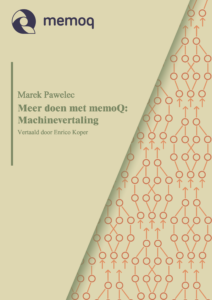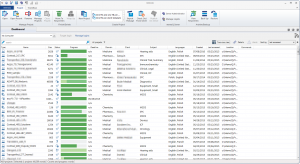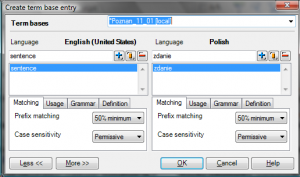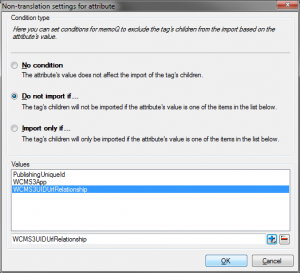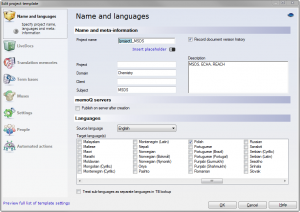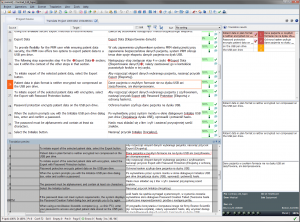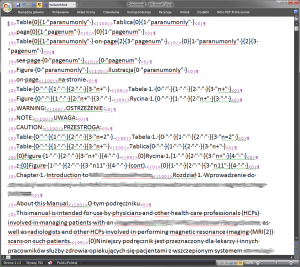Tweet Translation and revision are almost always tasks that require some organization and management. We receive jobs from our clients, often with some additional resources, like TMs, TBs and references. We also need to be able to track our progress on jobs we do, which involve different tasks. All this led to introduction of project-based …
Tag: CAT
Mar 03
Machine translation in memoQ
Tweet Machine translation (MT) is here to stay. Used properly, it can be a tremendously useful tool, improving translators productivity and simplifying work on relatively simple translations within certain domains. At the same time, improper use of MT can be a hindrance for translators, slowing them down and frustrating with useless suggestions. For “proper” use …
May 23
memoQ 2015 project filtering
Tweet On Friday, May 22nd, during the memoQfest conference in Budapest, Kilgray officially released memoQ 2015. One of its new features is redesigned Dashboard view – the screen you see when you start the application. And although it looks better than in previous versions, initially I was disappointed with the new filtering feature. But after …
May 18
memoQ 2015 preview
Tweet Tomorrow I’m leaving for Budapest to attend memoQfest conference, where new memoQ2015 will be officially presented. I was lucky enough to receive beta version for testing. I’ve been using it for a bit over a week and I’m ready to share my impressions. In short: solid, steady improvement, but no revolution. And that’s a …
Jul 06
XML translation – part 2: memoQ
In my previous post I’ve described what is XML, what is it for and what are the particular components. This time I’m going to show you how to properly import almost any XML file into memoQ for translation. I’m going to reference the files described in previous part, so you might want to look there for comparison and file structure description.
Jun 04
memoQ 2014 – first impressions
Tweet New memoQ is coming and you’d better grab it as soon as it arrives! Kilgray assumed a steady schedule of new major memoQ versions – once a year, somewhere during the summer. This time it’s June, the version is 2014, and the list of changes and new features is really, really long. I have …
Feb 25
Raport z redakcji w kilka kliknięć
Ostatnio coraz częściej oprócz tłumaczenia zajmuję się redakcją. A po redakcji czasem trzeba udokumentować wprowadzone zmiany, zwłaszcza jeśli było ich dużo. Co prawda nowsze programy CAT dysponują funkcją śledzenia zmian (dostępna np. memoQ czy Trados Studio), to jednak przygotowanie raportu w formie czytelnej poza określonym programem, choć nieskomplikowane, jednak wymaga trochę pracy. Na szczęście istnieją narzędzia, które służą właśnie do obrazowania zmian między dwoma wersjami dokumentów dwujęzycznych.
Dec 03
memoQ 6.2
Wypuszczony w sierpniu tego roku memoQ 6.0 przeszedł jakoś bez echa. Podstawowa różnica w stosunku do wersji 5.0 polegała na tym, że program został napisany niemal całkowicie od zera, przez co zrobił się szybszy i stabilniejszy. Wprowadzono trochę zmian w interfejsie, ujednolicając go i łącząc w spójną całość elementy, które wcześniej sprawiały wrażenie chaosu. Z istotniejszych usprawnień dodano autotekst, nowy tryb przydzielania zleceń w projektach serwerowych i możliwość podziału dokumentu z zachowaniem podglądu. Dobre, przydatne zmiany, ale bez rewolucji.
Aż do teraz. W piątek została oficjalnie udostępniona wersja 6.2.
Sep 27
Dealing with Sajan TMS exports
Tweet One of my end clients recently introduced Sajan TM management system. As a result, instead of Trados TMs and TTX files which were a standard previously, I began to receive jobs as an Excel files, containing source segments and pre-translation (from 80% matches up) in separate columns. Additionally there’s a column with TM match …
May 17
Regular expressions in memoQ
Tweet Regular expressions are special rules which allow us to find a text meeting specified conditions and do something useful with it. In memoQ, this “something useful” may mean segmentation, “auto-translation”, conversion to a tag, or including/excluding text from translation. Regular expressions can be used in memoQ to greatly extend its functionality. During this year’s …


